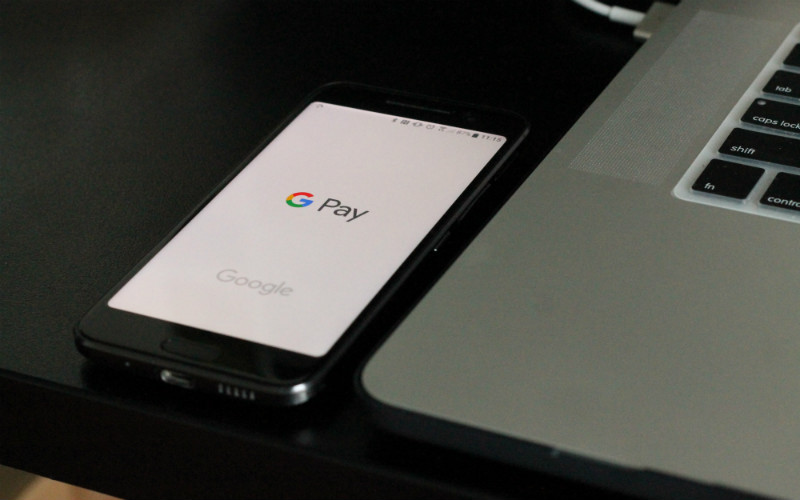It’s estimated more than half of Australians die without a will. It’s a staggering figure when you consider the death rate is 100%. There are many reasons people don’t have a will or a plan in place for what happens to what they leave behind. One is they think wills are only for the old - or the rich. Another is they fear making a will is expensive. Many others simply don’t understand the consequences of not having a will. But let’s start at the beginning.
What is a will?
Simply put, a will is a legal document that spells out how you want your assets distributed when you die. It should also nominate the person (or persons) you want to carry out your wishes when you’re gone, called an executor. A will should be in writing - ideally typed, although clear handwriting is acceptable. To make it valid, it must be signed and witnessed by two people. They must be over 18 and not be beneficiaries in the will.
Why should you make a will?
There are several reasons to make a will but estate planning expert John Devlin, Principal of DBL Solicitors (pictured below), told Savings.com.au there is one overriding reason - to simplify things for those who are left behind. “By setting out your wishes, there is a clear roadmap at a time when people can be under stress and tensions can arise,” he said.

Wills are also a way to:
-
look after the people you care about
-
leave particular items to certain people
-
nominate a person who you trust to make sure your wishes are carried out
-
leave specific instructions
-
give to a particular charity
What happens if you don’t have a will?
If you die without a will (called ‘dying intestate’ in legal terms), it's a common misconception that "the government" will take your assets. This is not the case. Each state and territory in Australia has its own intestacy rules to determine how your assets will be distributed after your death. Although the laws differ slightly between jurisdictions, generally intestacy rules provide for family members to inherit your assets after you die. Under intestacy laws, a person, usually a next of kin, must apply to the relevant court to be granted the authority to administer your estate.
When should you make a will?
Some legal experts nominate 18 as an age to put an estate plan in place. Although many 18-year-olds don’t own property or too many assets, they will generally have started accumulating superannuation. If there is a life insurance component as part of the super, this generally results in a lump sum payment to the fund. Superannuation funds have their own laws to distribute any funds or insurance benefits, but it illustrates that many people may have more assets than they realise.
Basically, the right age to make a will is the age at which you feel you have responsibilities to meet. Wills are particularly important if:
-
you have significant assets
-
you have children
-
you have a blended family
-
you have specific thoughts about who you would like to receive your assets should you die
How do you make a will?
Solicitor
Solicitors are qualified legal practitioners who can guide you through the process of making a will and ensure it is valid and stored safely. A solicitor can advise what is best for your individual circumstances and assist you to leave clear, unambiguous instructions when there are more complex scenarios. Fees to create a simple will with a solicitor can start at around $300-$500 an hour but are subject to great variation depending on the complexity of the will.
Public Trustee
Every state and territory in Australia has what is called a public trustee to oversee the administration of deceased estates and handle the financial affairs of people deemed legally incapable of doing so themselves. As part of their role, they also offer will-making services. These are free in Queensland (as at March 2024) or, in other jurisdictions, free to certain customers (such as Centrelink Aged Pension cardholders or to people intending to appoint the Public Trustee as executors or administrators of their deceased estates). Public trustees offer appointments to those wanting to make, or update, a will. Fees are generally charged according to how long the appointments are. See the table below for will-making services and fees in each jurisdiction:
|
Jurisdiction |
Public Trustee |
|---|---|
|
New South Wales |
New South Wales Trustee & Guardian: https://www.tag.nsw.gov.au/ |
|
Victoria |
State Trustees of Victoria: https://www.statetrustees.com.au/ |
|
Queensland |
The Public Trustee of Queensland: https://www.pt.qld.gov.au/ |
|
Western Australia |
Public Trustee of Western Australia: https://www.wa.gov.au/organisation/department-of-justice/public-trustee |
|
South Australia |
South Australian Public Trustee: https://www.publictrustee.sa.gov.au/ |
|
Tasmania |
The Public Trustee of Tasmania: https://www.publictrustee.tas.gov.au/ |
|
Australian Capital Territory (ACT) |
The Public Trustee and Guardian for the Australian Capital Territory (PTG): https://www.ptg.act.gov.au/ |
|
Northern Territory |
Office of the Public Trustee for the Northern Territory: https://nt.gov.au/law/processes/public-trustee-of-the-nt |
Do-it-yourself wills
Will kits, such as those available from Australia Post, can be a cost-effective way to draft a valid will without the involvement of a lawyer. A will kit generally packages all the necessary materials and instructions for creating a basic will, including pre-printed templates, step-by-step guidelines, and information on legal requirements.
Mr Devlin says these can do a fine job for simple, straightforward wills – but only if the documents are properly filled out. “When there are parts not filled in correctly or missed out, the will can be legally challenged and this can lead to what’s called ‘partial intestacy’ which can cause delays and extra expense,” he says.
Will kits work best for straightforward wills but come without personalised legal advice that can assist with specific situations or other complexities. The Australia Post Will Kit sells for around $25. Bear in mind, when you make your own will, you are also responsible for storing it safely. You can do this in your own home, or you may choose to store your will with your executor or another trusted person. Mr Devlin advises it is best to have your will held by a solicitor to ensure it will not be lost or forgotten.
Online wills
In the digital age, there are also numerous online will-making tools. These too can be used for straightforward wills although it’s crucial to remember a drafted electronic version of an online will is not a legally binding document. In order for an online will to be valid, it must be printed, signed, and witnessed correctly. It’s also important to ensure the online tool you use meets the legal requirements for a will in the state or territory where you live.
Expert advice
Mr Devlin says his best advice for anyone making a will is to make it as simple and straightforward as possible. “I advise people not to try to rule from the grave,” he says. “Keeping it simple is the best way to make your intentions clear and can be most easily carried out.” He also advises telling the person who you wish to be the executor that you would like them to take on that role and that you have made a will. Although you can name more than one executor, Mr Devlin says it can be more straightforward if just one person is nominated, but this can depend on the circumstances.
Although making a will can be a simple process, in many cases, wills do not remain static documents and need to be updated as circumstances change. Mr Devlin recommends reviewing a will every two years or so. “That can mean just having a look at it and seeing if anything has changed,” he says. “If there have been big changes that have happened in your life, such as getting married for example, your will will be automatically void anyway.”
Other occasions that should trigger a will update include:
-
separation or divorce, or changed family situation
-
if an executor dies or becomes unable to carry out the task for any reason
-
if a beneficiary dies
-
if you begin a new company, trust, or business
-
if you subsequently sell any property or assets mentioned in your will
What happens to your debt when you die?
While we’ve discussed what happens to your assets when you die, it’s also worth knowing what happens to any debts you have. Basically, debts become part of your estate. If your debt is held jointly with another person or under a guarantee, then they must assume responsibility for it.
If the debt is in your own name, your estate must pay any debts first before any assets are distributed according to your will. If there is enough money in your estate, the executor or administrator must use it to pay off any debts. If there is not enough money, any assets you own must be sold with the money used to pay back the debts. If there is still not enough money after your assets are sold, the debts may not need to be paid back – or paid back in full. If your estate is ‘insolvent’, that is, it doesn’t have the funds to pay back any debts, they are not inherited by your beneficiaries. This is a very basic rundown but, simply put, it’s worth noting your debts do not vanish when you die.
Talking about death can be confronting for many people but, as the saying goes, dying is a fact of life. Remember you are the person best placed to ‘put your affairs in order’, saving your loved ones from what can be long and involved legal processes that can go on well after you’re gone. Leaving even a basic will can be a practical and meaningful final gift for those you leave behind.
Image by Ben White on Unsplash
In text image supplied by DBL Solicitors



 Emma Duffy
Emma Duffy
 Denise Raward
Denise Raward













